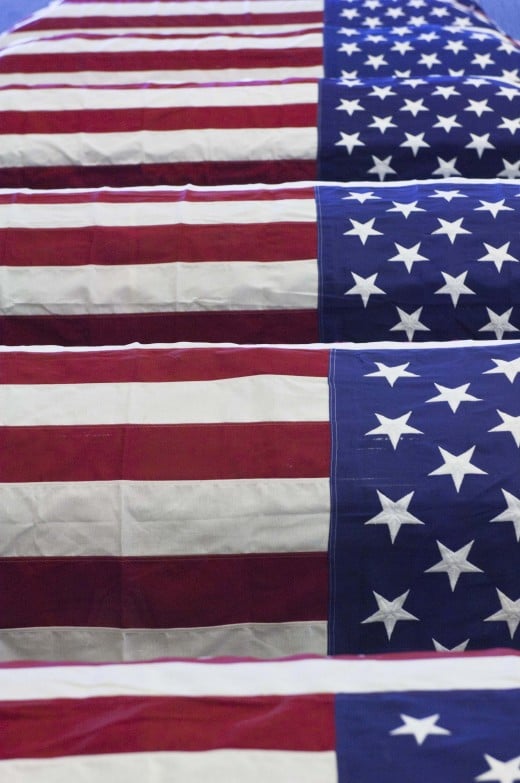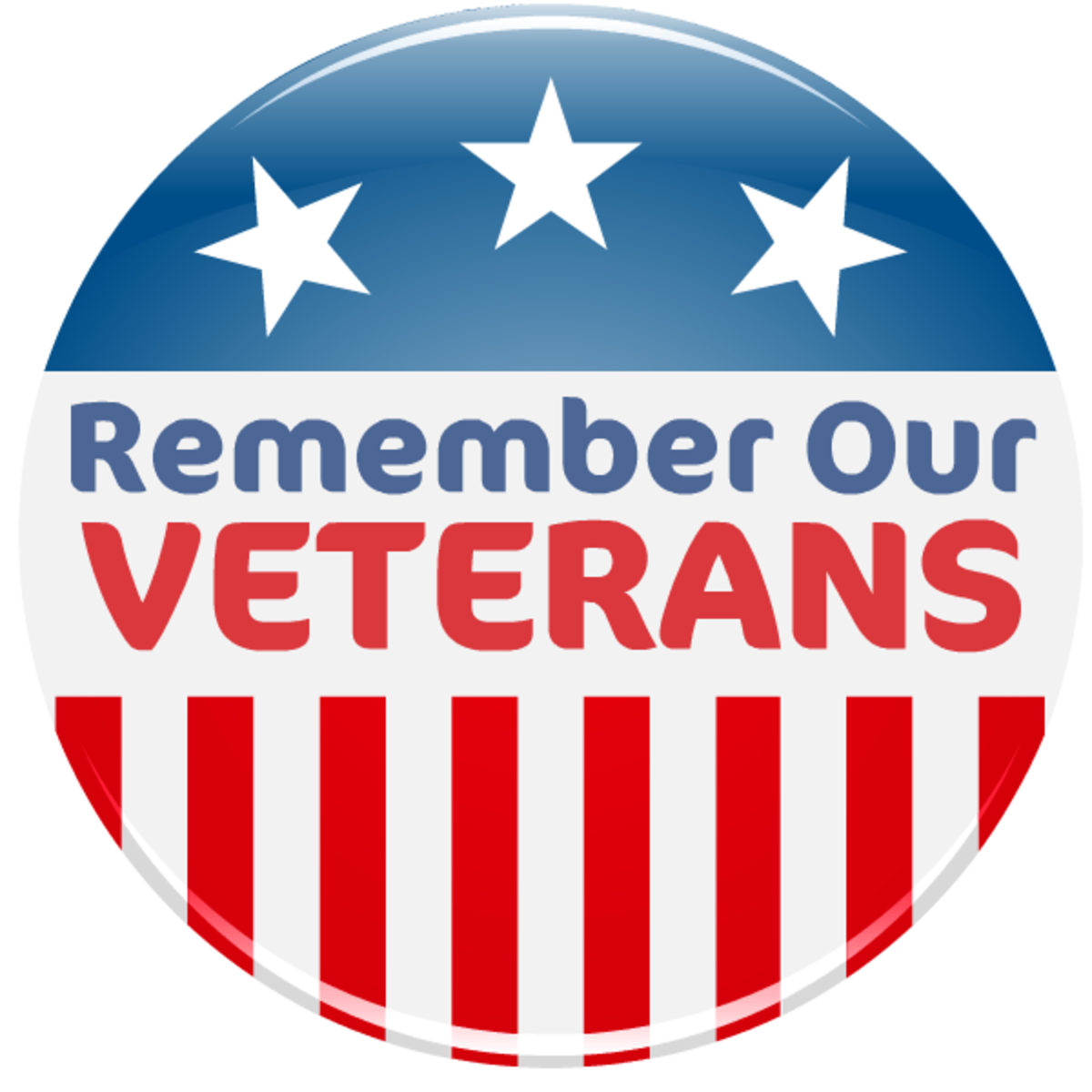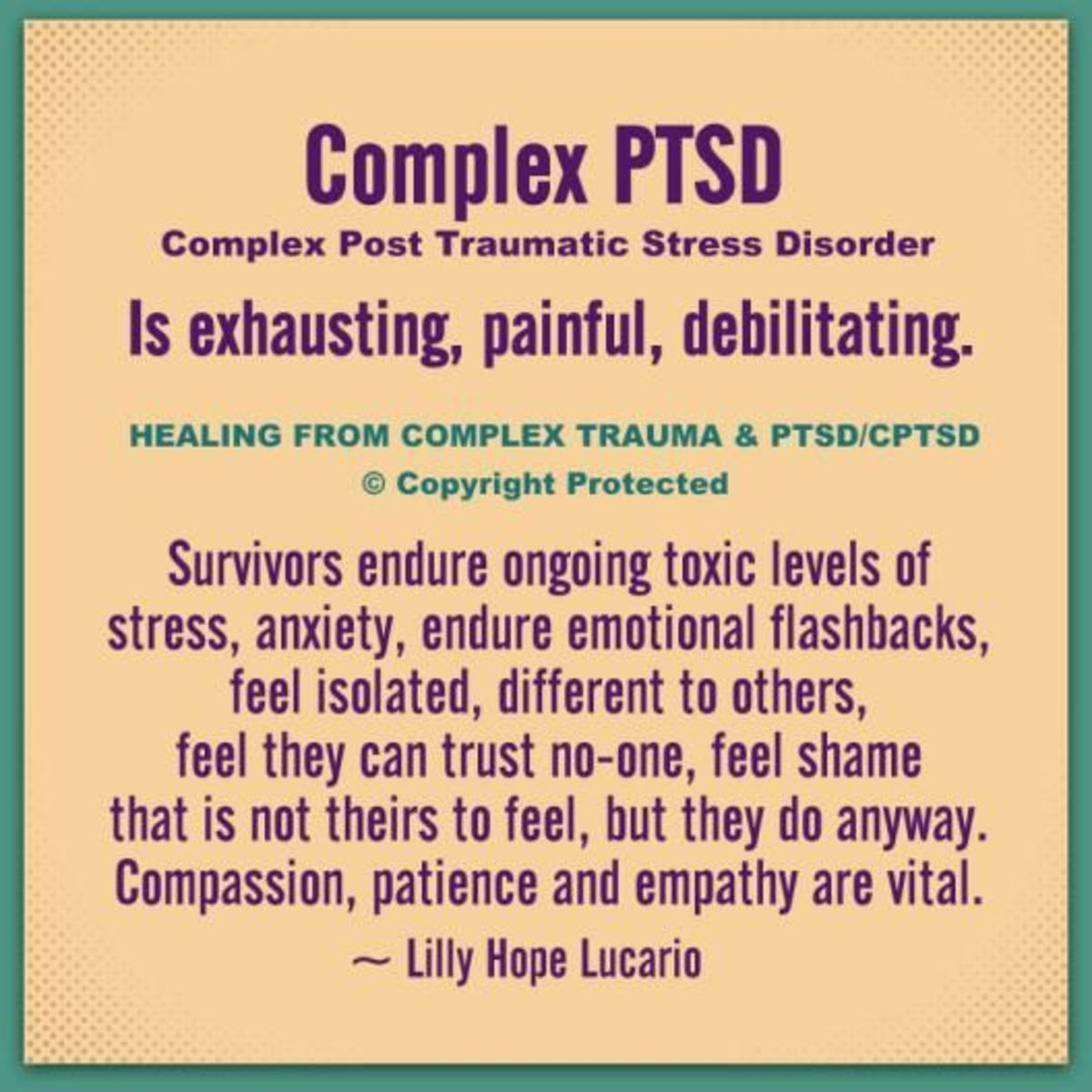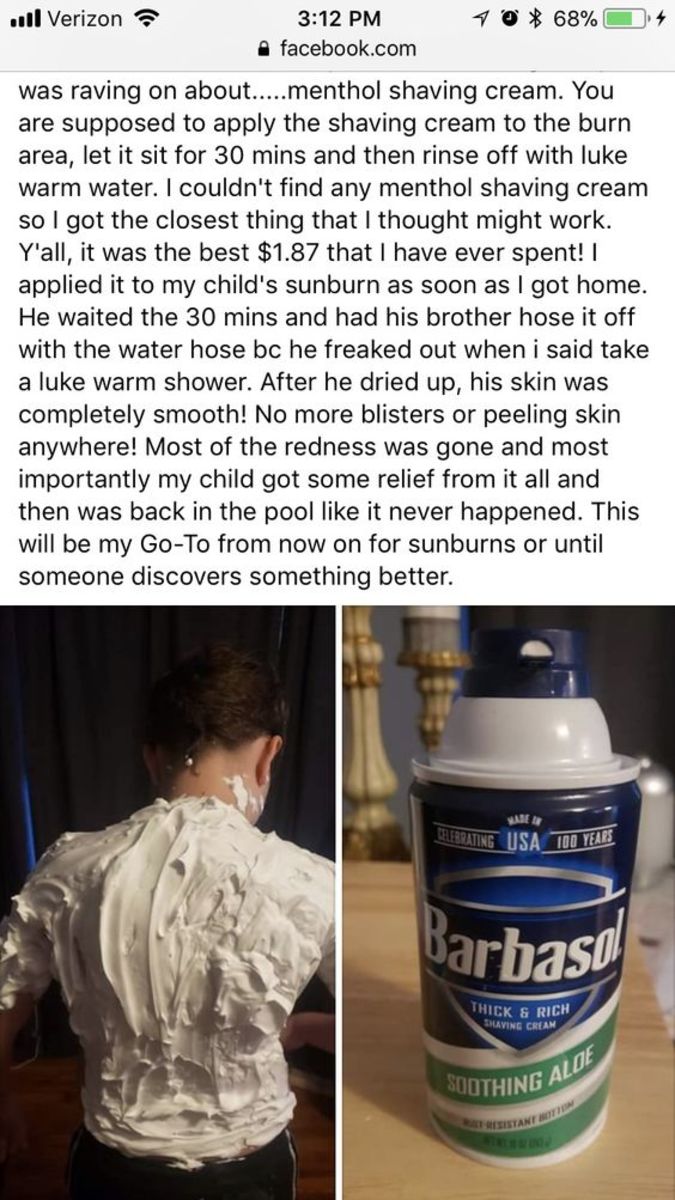8 Meaningful Ways to Honor Veterans

“Thank you for your service.” Veterans everywhere appreciate hearing these words. But a simple statement of thanks is a woefully inadequate way to show gratitude when you consider what every service-member, including those who never see combat, has sacrificed and experienced for the benefit of you, your family, your neighbors, and your community.
Like most vets, I feel proud to have served my country whether anyone offers thanks or not, just like my father, two of my brothers, my ex-husband, and my daughter. When I was on active duty, I saw some touching examples of appreciation, like when I received a touching letter during a Christmas holiday when I was stuck in the barracks and unable to visit family or friends. Even though I was still in the United States, I'll never forget the loneliness of that Christmas as most of my fellow soldiers went home to celebrate as I looked forward to eating a turkey dinner by myself at the chow hall! The woman who sent me that letter helped stave off the bleakness I was feeling.
I was a counselor in the armed forces. Before I specialized in counseling people with drug and alcohol addictions, I evaluated trainees who weren't coping well with basic training. I helped them get through feelings of depression and suicidal thoughts as they entered an unfamiliar culture where their opinions no longer mattered and they had nobody to talk to.
Please take a moment to reflect on the losses veterans regularly endure and reciprocate with a meaningful gesture to show them that you're not simply offering meaningless words when you say thank you.
Veterans Sacrifice Familiar Lifestyles
When a young man or woman reports for military service, their first experience is that of leaving their family and friends behind for a minimum of two months while they complete training. For many, it is their first experience away from home, yet they are unable to pick up a telephone and call someone when they feel lonely, discouraged, or incompetent. It’s virtually guaranteed that they’ll have these feelings while they undergo the mental and physical challenges that transform them from a civilian into a warrior.
Drill sergeants are on a mission to "militarize" them by breaking down their spirit and instilling an entirely different set of ethics. Privates who complain about being unable to shave or wear makeup, about getting awakened in the middle of the night, or about not being able to see their boyfriend or girlfriend risk getting taunted and punished in other physical or creative ways. The punishments might be geared toward making them stronger. Who hasn't heard "Drop and give me twenty!" in familiar movie scenes? Sometimes they're even funny: "Go pick all those dandelions, private!" But to a young guy or gal barely out of high school, it can be a lonely, painful experience.
After completing training, many report feeling unable to relate to their friends as they once did. They walk differently, speak in acronyms that peers don’t understand, and find it hard to empathize with their pals as they used to. "I'll visit after BCT and AIT if I get some TDY, but I might have to wait until I PCS." Translation: "I'll visit after my basic training and job training ends if I get assigned to temporary duty, but I might have to wait until I get orders for a permanent change of station."
Veterans' Daily Lifestyles Are Different
They become accustomed to chipping in to care for their environments and communities. When it snows, they are commanded to shovel sidewalks that they may have never set foot on. They’re ordered to pick up litter and debris that others tossed to the ground. In short, they become responsible to and for the citizens they serve whether they get deployed or not.
Many civilians have never experienced conducting a police call - lining up shoulder-to-shoulder with each other to pick up even the smallest pieces of litter over a large area. Failing to grab that cigarette butt that some stranger's mouth gummed up can result in everyone staying another hour to go over the area more carefully. Soon, the soldier finds himself picking up litter when nobody's watching, even when he's on vacation.
Those who are married are offered housing on post, where their lawns must be maintained precisely in order to avoid penalties that go through their chain of command. Although the penalties aren't severe, even one can put a soldier out of the running for a promotion if he or she is in a competitive MOS. Oh, that's another of those acronyms: Military Occupational Specialty.
All of these things are minor sacrifices. Most soldiers feel good about making them because they know they'll have a positive impact on their quality of life and their communities. Some sacrifices have a much different effect, though.
Vets Rarely Talk About Combat Zone Experiences
- Company Led by Top Admiral Buys Michigan Vaccine Lab - New York Times
I researched this topic extensively some years ago. This article details how animportant government official and a member of the bin Laden family - Fuad al Hibri - bought an lab the FDA threatened to shut down. The lab made the drugs mentioned above. - Agent Orange and Cancer
During the Vietnam War, the US military used large amounts of mixtures known as defoliants, which were chemicals that caused the leaves to fall off plants. One of these defoliants was Agent Orange, and some troops were exposed to it. - Other Unproven Drugs Were Also Forced on Soldiers
The Department of Defense is unable to say how many soldiers received anthrax and botulin vaccines. At the time, anthrax had not been proven effective against inhaled anthrax. - Heal
Why did the FDA allow PB use when it was not approved for any medical condition other than myasthenia gravis? This article examines this question. - GULF WAR ILLNESS AND PYRIDOSTIGMINE BROMIDE
My ex-husband administered PB to his troops as a direct combat order. This article accurately describes what soldiers endured over several years.
Sacrifices Soldiers Make in the Combat Zone
Those who are sent to combat zones face a plethora of health risks. The Department of Veterans Affairs (VA) reports that more than twelve percent of combat vets suffer from PTSD in their lifetimes. Post-traumatic stress disorder is a lifelong, sometimes debilitating disorder with no known cure. Among civilians, fewer than four percent are afflicted with the condition. Other combat-zone affects impact many more of our heroes. Mysterious lung conditions, traumatic brain injuries, and depression are far more prevalent among veterans than they are in the general population.
Some veterans have had to endure confusing and misleading government propaganda that prevented them from receiving adequate treatment for illnesses they contracted because of combat. My friend Larry, for instance, was an outstanding soldier. Before he was sent to the first Gulf War, the young captain ran two miles in a little over fourteen minutes.
While in Iraq, he told me, he was exposed to something but didn't know what. "Chemical alarms were going off again and again, but they kept saying it was a false alarm." However, he was unable to complete a two-mile run after his deployment. He was stricken with a chronic, low-key cough that interfered with his ability to speak a complete sentence. He was discharged from the service as the Department of Defense denied the presence of any chemical weapons in Iraq. It wasn't until several years later that they finally acknowledged that nerve agents had been present and contributed to the Gulf War illnesses that soldiers like my friend had experienced.
Sometimes soldiers find out that their health may have been compromised even if they still feel healthy. My ex-husband received a letter in the mail informing him that his combat service had likely exposed him to depleted uranium, but that he probably didn't need to worry. If he had questions, he should call the toll-free number provided in the letter.
I could give several other examples. When our government strong-arms soldiers to take medicines that are unproven under the threat of disobeying an order in a combat zone, I consider that a betrayal of our country's heros, but it would take me an entire book to tell you about the pyridostigmine bromide (PB) and the steps that led to vaccinating against anthrax, so I won't. Much of the information has been removed from the Internet anyway, but if you're interested, please visit the links shown here.
Combat Affects Vets Long After It Ends
When Soldiers Become Veterans
Upon receiving an honorable discharge, the government ships them back home, wherever that may be, with no follow-up assistance. The transition to civilian life can be daunting, especially for service-members who served a single enlistment. Their friends have moved on, and they’ve left behind their military buddies. Their home cities have changed during their absence. They can file for unemployment while they search for a new job and home, but both unemployment and homelessness rates are consistently higher among veterans than non-veterans.
Those who were injured in combat, have traumatic brain injuries, or suffer from post-traumatic stress disorder face additional challenges, including long waits for medical appointments and a backlog of cases that can delay being granted disability pay until many months after their discharges.
Best Ways to Honor Veterans
When you consider just how much a young person has sacrificed to protect our reasonably comfortable way of life, wouldn’t you agree that much more can be done to demonstrate our gratitude? This year, consider honoring our veterans in a way that will have a lasting effect.
1. Read the United States Constitution, including its amendments. Make it a point to understand the principles our veterans stand behind better than you do today.
2. Hire a qualified veteran. You’ll appreciate their ability to take direction, be goal-oriented, and their attention to detail.
3. Commit yourself to spending an hour visiting a veterans’ nursing home twice a year - Veteran’s Day and Memorial Day. Every state has at least one veterans’ home. It might mean spending an entire afternoon devoted to the task, but that time is a small investment by comparison to the sacrifices they made for us, after all.
4. Make a PayPal or paper check donation to Stop PTSD Now. Based in Illinois, this non-profit organization is devoted to researching and developing treatment methods for post-traumatic stress disorder.
5. Set up an affordable monthly donation from your bank account to support a homeless shelter. Your donations will help provide food and warm beds for the men and women who make sure we have the right to such necessities ourselves.
6. Ask the people you do business with to support veterans. Ask the manager at your local grocery store to donate surplus food to a homeless shelter for Veterans’ Day. Invite your dentist to donate toothbrushes and toothpaste. Find out if your physician would offer periodic free exams for homeless veterans. Inquire whether your bank would place collection cans at the teller windows to collect funds to support your local VFW (Veterans of Foreign Wars) or DAV (Disabled American Vets). If these companies can’t provide goods and services, perhaps they’d agree to make a donation.
7. Offer a donation that goes directly to a veteran's specific needs. A newly formed non-profit called GenerationsLife has many suggestions to help anyone make a difference even if they have no money or time.
8. If you have a specific vet in mind, consider sending him or her a meaningful gift like the ones shown on this page.
Making one of these Veterans’ Day gestures may put you on the receiving end of thanks the next time you meet one of America’s heroes.





